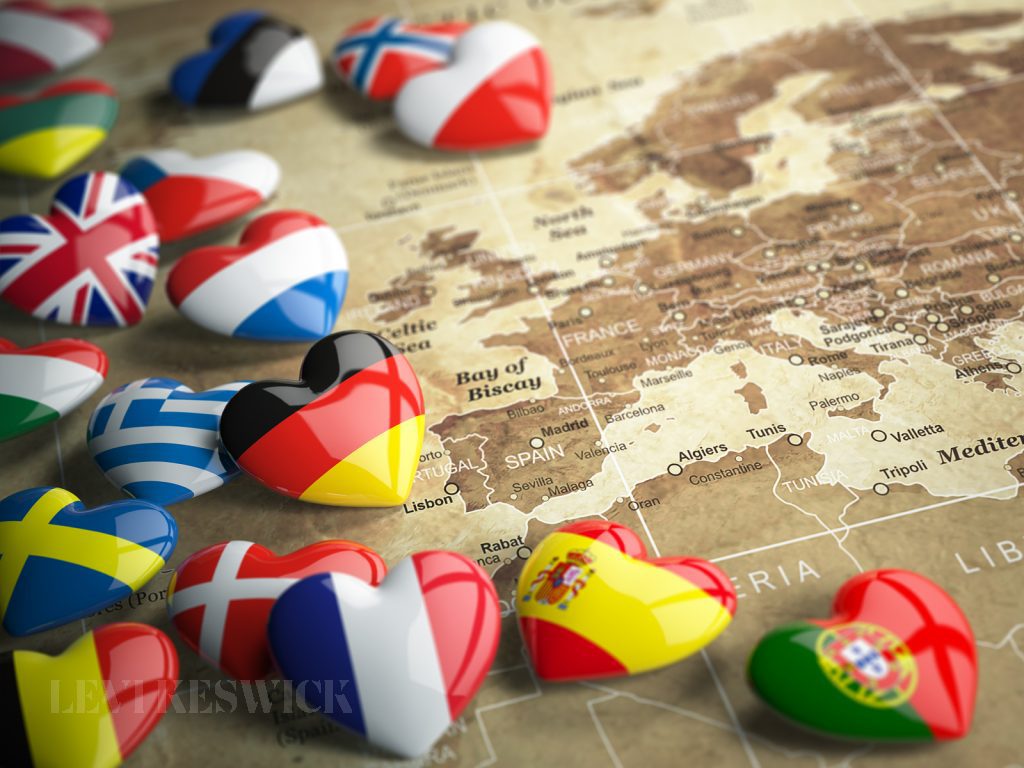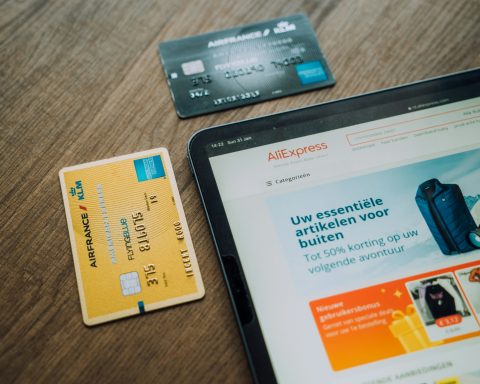Europe is home to over 700 million consumers, most of whom are relatively affluent, and the headquarters of many huge corporations such as Nestle, Royal Dutch Shell, Siemens, HSBC and Unilever. As economies in the region revive, you may well find yourself doing business there. Here’s what you need to know in order to make a favourable impression with potential customers and partners.
As a general rule, avoid misunderstandings by only touching other people’s space if you have their permission. For example, a handshake, a hug, a high-five, or a pat on the shoulder. If you are invited to a German or French home, shake hands and sit down on the sofa at the invitation; if you are invited to dinner, sit down at the table and wait to be invited to join the meal with the phrase “now enjoy”.
If you are leading the meeting, non-verbal cues will be important and will enable the participants to read your mood and body language. If you intend to give a speech, make sure you have it memorised and have consulted the notes beforehand in order to identify where you want to make a particular point. This will give you the confidence to move on when you reach that point. Since Germany has a strong culture of reading documents out loud rather than handing them around, it is important for you to be able to control your speech. A good way to achieve this is to speak more slowly than is usual for you.
If you are hosting the meeting, it is wise to create a relaxed ambience for your guests. This includes making sure there is free coffee and access to the toilets. It is also a good idea to offer your guests a tangible token of appreciation for their business, for example, a gift such as a pen, a notebook or a chocolate bar.
During a German meeting, there will be frequent breaks and a lot of switching between small groups. The German word “Pausenbrot” refers to the small slice of bread (and sometimes butter and cheese) that people take with them during these breaks to nibble on while standing up. You can expect to hear frequent use of the German word “Setzen”, which means either “would you like to take a seat?” or “shall we take a seat?”. You will also hear the word “dankeschoen” (“thank you”), and the phrase “Ich habe nur eine Frage” (“I have only one question”), which is often used by Germans when they sense that a pause is coming.
Presentation of a business card is a fundamental European business protocol. In Germany, France and Austria it is custom to exchange cards with a two-handed grip, by pressing the card against the other person’s hand with one hand while receiving the other person’s card with the other hand. The easiest way to remember this is to exchange business cards with both hands. Card exchanges in Italy are less ritualised. In Poland (and other Eastern European countries) a one-handed handshake, with the other hand on one’s belt or in one’s pocket, is common when exchanging business cards. Cards are often given with both hands in the north of Spain, but the two-handed grip is preferred in the south.
German business cards usually have the contact details (name, company name and position) printed on them. It is common for people to have two business cards (they are known as the eine Visitenkarte and die Rückseite). The first one is used when meeting someone for the first time, and the second one when they have been acquainted with you.
If you are visiting China or Taiwan from Europe, always arrange to have local currency instead of traveller’s cheques, as they are only accepted by large hotels and businesses. You should also make sure to take a few notes with you, as those will be useful in small shops where paying with the bank card is not possible.
Business meals are very important in China and involve a complex ritual of being asked several times if you would like to eat, drinking a lot of alcohol before a meal, eating lots of food, little talking and lots of respect for the senior person at the table. If you don’t eat a lot, it will be seen as a sign that you do not respect your host. Therefore, you cannot say no when your host offers you food, and you cannot leave the place before the senior person does (even if you are not hungry any more or have already eaten).
When foreigners are invited to a dinner in Germany, it is good manners to say “I am available” rather than “Yes, I will come”. This gives your host some time to cancel the invitation if he/she finds out something has come up. On the day of the dinner, it is customary to arrive on time. Introduce yourself to everyone and don’t sit down until your host has done so. According to German custom, you should take a sip of any drink that is offered to you and wait for your host to do the same before drinking any more. When it comes to food, the rule of thumb is: the smaller the mouthful, the greater the enjoyment.
German wine is treated with a great deal of respect, so it is considered bad manners to use anything but a wine-glass, and never hold the glass in your hand. The custom is to drink 2/3 of the glass at one go, then rest the glass on a dish/table.
At the conference you have been invited to, the seating arrangements will be precise and strict. The most senior people will sit nearest the stage and the least senior at the back, and people at the same level will be separated by seniority. In German-speaking countries, the term “Vortragende” (literally: “presenter”) is used for the highest-ranking individual on a conference panel, whereas in Spain and Portugal, it is “ponente”.
According to European business etiquette, when you are addressed by one of your superiors, you should always stand up and respond in a polite and respectful tone. Even if you are the same rank as your senior manager, it is only polite to stand up and say “Good morning/Good afternoon, Mr/Ms. Senior Manager”.
In some countries, conferences may only be attended by senior managers, whereas in other countries, it is also possible for more junior employees to attend. In a Spanish-speaking conference, for example, only senior managers will attend the opening reception, but the rest of the delegates will attend the conference itself.
Conferences may also involve a tour of the facilities where the conference is taking place, and a VIP lunch.
Italians will often use the informal “tu” form when speaking with friends and colleagues, while Spaniards and Portuguese will use the informal “você” or “tu”. However, you may use the “tu” with clients and customers. In Croatia, the “vi” form is used to address friends. In the Nordic countries, “du” is the informal form of “you”. However, employees should always use the formal “Ni” to a customer.
Business dress code in many European countries is now conditioned by a conservative approach to office clothing and high standards of smartness. For example, white shirt and dark suit; dark suit, sober tie and shoes with a low heel; dark suit with a tie, navy blue or grey, respectively. It is also considered smart to wear a pocket handkerchief.
Compare to other cultures where the clothing is taken less seriously, there are still some broad guidelines to follow. In some counties, the business dress code is influenced by the national style of the country where the company is based. For example, British international companies will often have a smart, but not too formal, dress code.
The business dress code in Germany and Austria has evolved and may nowadays include business-like jeans, shirt and shoes. Businessmen in Spain will be more suited in a business-like jacket, blouse, trousers or skirt, and shoes. Italians will, more often than not, be smartly dressed in a suit.
Business dress is usually informal in the Nordic countries. In Denmark, for example, a typical business outfit is a jacket or a blouse with a skirt or trousers.
Business dress code is dependent on the country and it is unlikely that the same pattern of dressing exists in every area. Even within a country, there may be local variations based on social class or region. For example, a Spanish fashion designer wears different clothes to an Iberian hotelier. It is therefore important to know what your customers expect.
Other business etiquette includes: When in doubt, do as the Italians do. To understand business interaction in Italy is difficult for many non-Italians to follow and requires a great deal of flexibility in adapting to local humour and the avoidance of confrontational personal attitudes. The rules of conduct can change unexpectedly, and there is probably as much politeness and consideration in being handed a piece of paper and a pencil as in a handshake.
Tipping in Europe is not expected as a general rule, but not tipping in some European countries is frowned upon. For example, service charges are included on bills in Austria and in Germany, and in these cases no tip is necessary. However, tipping is common in countries like France, Italy and Spain. In Switzerland, there is no tradition of tipping, so do not be surprised if it is not expected!
In France, a service charge of 10% of the bill is commonly added to the bill. If you feel that the service was particularly good, add an extra 5% gratuity. These additional amounts should be left on the bill — not added by hand — and you should specify *service compris*. If service is not included and you are satisfied with the waiter’s service, a tip of 10-15% of the bill is appreciated.
In Germany, no service charge is added to the bill. If you have received good service, add 10% to the bill. The same goes for Switzerland, where there is not very much tipping. However, some bar owners and snack bar attendants may receive an obligatory tip as they are specifically employed by the owner to assist customers.
In Spain, service charges are not usually added to the bill. However, topless bar and bar maids expect a tip if you have received good service. Standard service charges from other staff members may be included in the final bill. When settling the bill, including the cost of tips, you may say “tiene?” before signing it. If there has been poor service, you should leave a small tip (under 5%) rather than nothing at all.
In Portugal, service charges are not included in the bill. With the exception of a few restaurants, it is poor etiquette not to tip at all. Waiters will usually round up the figure, or add a few extra euros, and bartenders will
In Croatia, service is included in the price of the meal, however, tipping is a regular practice and the tip is usually around 5% of the bill.
Always check your bill to ensure that the amount is correct, and confirm it with the waiter/waitress before paying. If you have ordered your food in a restaurant and the waiter has brought you the wrong item, you should not only insist that you are served with the correct dish, but also pay for that dish. You can say, “Bitte, das Essen zurückbringen” (please take the food back).
Tipping in a bar in Geneva is not necessary. In a bar in Zurich, it is usual to tip 0.50 francs to 1 franc. In bars in Spain and Portugal, you may not pay with the tip included in the bill. In a bar in Switzerland, it is customary to leave the tip on the bar together with the coins. From a service charge or added to the bill, tip 10% to 20% to the barman/barwoman.
Tipping in a supermarket in Switzerland is not customary for customers; however, it is customary for shop employees. In Spain, employees are never tipped as there is a service charge added to the bill. In Portugal, it is customary to tip all service employees, except the person who sits with you in the dining room of a restaurant. In bars, salons, hairdressers and restaurants, waiters expect a tip, but employees generally do not expect tips. It is customary to give subway and taxi drivers tips.
In Spain and Portugal, it is common to give a tip if you have received good service from a hotel employee. In Spain, the standard tip is 1-2€ per employee per day, per room, left in a dish at the reception. In Portugal, a €1 to €2 tip for good service is customary. In Germany, Italy and France, it is necessary to leave a tip based on the service and the type of service. No tipping is necessary at all in the Scandinavian countries.
In the United Kingdom, tipping is not obligatory, but the customary tip is 10% or more for good service.
Bartenders, waiters, and other bar, food and hotel staff should be paid a small tip (less than 10%) if they deliver good service. Tips of up to 10% of the bill are acceptable. If you have received exceptionally good service, though, you could give up to 20% of the bill as a tip.
In Switzerland, servers do not expect a tip as a rule, as service is included in the price of the meal, so a tip is highly appreciated. In addition to the person presenting the bill, it is a custom in Switzerland to tip the hotel staff and taxi drivers.
In Spain and Portugal, the staff working in the hotel industry do not expect a tip at all, nor is there usually any service charge added to the bill. However, receptionists are usually paid very low salaries and tipping is important, or at least appreciated, for them. Therefore, it is customary to tip the receptionist at the time of your departure. The norm is to give 1€ to 2€ per person per day, depending on the level of service received. If you have stayed in the hotel for less than three days, the tip can be increased. If you feel that the service has been poor, decrease the tip by 10%.
Customer service is an individual’s interaction with another who is called the customer. It is a part of a company’s overall customer-satisfaction strategy and it is important to create a friendly and positive atmosphere to make the customer feel comfortable whilst experiencing the services provided by the company. The nature of this service may be to answer questions, provide information, offer advice or solutions to problems and complaints. It also includes assistance during a transaction such as offering a product or service, giving a detailed explanation of its use and getting details of the product or service that has been purchased.
Business Etiquette In Europe: Conclusion
The conclusion is that it would be wise to know all of these rules. They are all so very different. There may be some that you have not yet encountered. Wherever you choose to travel in Europe, remember to always check out the tips we offer you for each country. Have a safe traveling.







